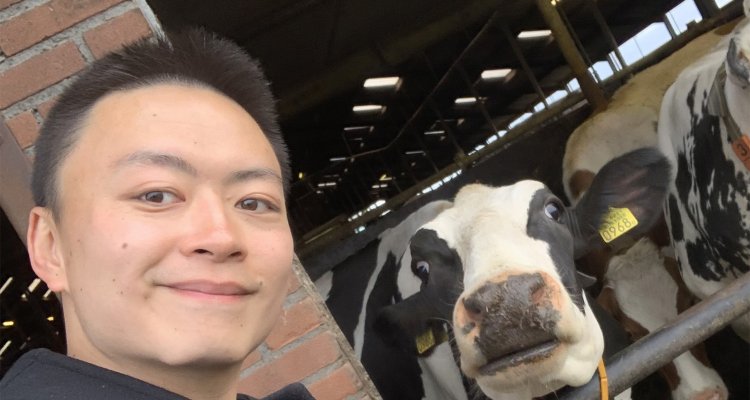
Student testimonial
Dingming Rao - MSc Food Quality Management
“For my Bachelor I did a combined programme shared between Van Hall Larenstein University of Applied Sciences and Yunnan Agriculture University in China. I majored in International horticulture and marketing, and during my minor I did a course in Food Safety at Wageningen University. This is when I heard about the MFQ (Master Food Quality Management) programme. During my Bachelor internship, in which I was working on vegetable preservation, I saw more and more use for MFQ. After my Bachelor, I worked for a few years, which is when I realized that I could use some in-depth analytical tools to support my job. That is when I decided to go for this master. I picked the specialisation in quality control and assurance, because to me, that is the core of food safety and quality control.”
I now feel confident and well-prepared to pursue a PhD or a food industry job!
The programme
When Dingming started, the programme was what he expected. “The compulsory courses, the core of the programme, were exactly what I was looking for, but I also liked the freedom to pick some other courses that could spark some extra interest. In my case, I picked Law of the Life Sciences in period 1, because I wanted some preparation for Food Law in period 2. Those two courses actually triggered a huge interest in the law within me and Food Law became one of my favourite courses.’ Further into his first year, he got an even more valuable insight. ‘Between the half and the end of the first year, all the theory got connected more and I noticed that I was tracing things back to the philosophy behind it. That is when I noticed the strong foundation all the theory we learn is based on. I think that really shaped my way of thinking and recognising real life problems.”
At this moment, Dingming already finished his thesis and is currently working on his internship, for a food and animal feed company named Cargill, on a food safety incident. He also did his thesis there, and for both projects he followed a course that prepared him well. “In the thesis, there was not a lot of literature available, so I had to use the techno-managerial approach I learnt in the Food Quality Management Research Principles courses and develop instruments and analytical tools to analyse the problem at hand. In the internship, which is more practical, I am using almost all of the seven tools I learned in the course Advanced Tools in Quality Management to analyse and solve food safety problems.”
Future jobs
The thesis and internship gave Dingming a lot of confidence about what he can do after he graduates. “Before I started the internship, I was quite sure I would like to pursue a PhD in research, but now I have seen how things go in the industry, and I feel I am well prepared to dive into a job in quality control and assurance, too. I am keeping my options open.”